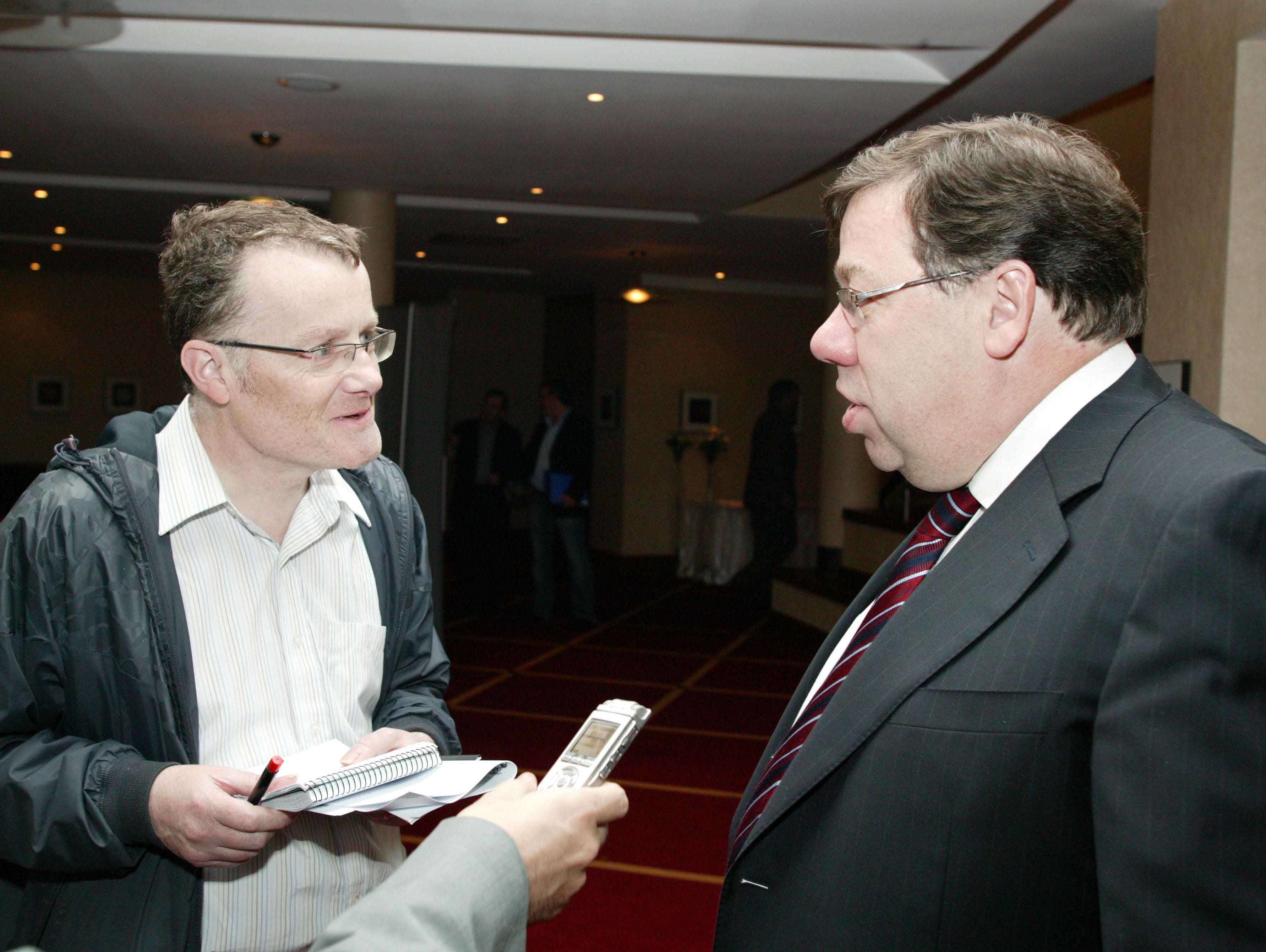
Names like Terry Wogan, Eamonn Andrews, Craig Doyle or Mary Kenny are well-known examples of successful Irish journalists based in Britain.
However, all of them have one thing in common: they were based in London. As my own experience testifies, if they were based in other areas of England, their Irish journalism experience would not be recognised.
I worked for over 18 years as a journalist in Ireland, with the now-closed Offaly Express. Personal circumstances took me to London, where I worked for the Romford Recorder and then as a sub-editor with Associated Press.
Later on I made a grave error in returning to Ireland, in the mistaken belief that work there would be more secure, but was barely back when made redundant by another newspaper during the economic crash of 2008.
In 2011 I came to Liverpool, thinking at the time that it could be a base from which to return to employment in media. Despite its travails, the UK news industry, by dint of its scale, remains far stronger than its Irish counterpart.
However, in the intervening years I have had to retrain a number of times – taking a diploma in health and social care, working for three years for homeless charities – as well as doing everything from packing boxes in factories to working in a call centre, as I struggled to find media work.
I am well aware of the scale of the downturn in the industry and I am also aware that London is where most jobs are (the aforementioned Mary Kenny actually told me there was nowhere else you could make a career in journalism than the capital), but not everybody can afford to live there.
So why is it that regional newspapers in the UK, unlike the national ones, insist on an NCTJ qualification? And why do they, by implication, regard Irish journalism experience as being inferior?
This attitude is not reciprocated. I am aware of a Scotsman and an Englishman who have worked as journalists in my home town. The latter, Nick Miller, is now a media adviser to Ireland’s Taoiseach.
British journalism experience is greatly respected in the Irish media and I genuinely wonder why this attitude cannot apply both ways.
I was told by one retired editor that as a foreigner I would not understand British law and that it would be irresponsible for an editor to employ an Irishman.
Yet Ireland’s libel and defamation laws are, if anything, stricter than those of the UK’s. A prime example is the recent trial in Belfast, Northern Ireland, of a number of rugby players charged with rape and subsequently acquitted.
The naming of the defendants would have been utterly impossible in a court in the Republic of Ireland.
Newspaper editors will of course deny that there is anything racist about insisting on the NCTJ, and will cite journalists from various parts of the world who have obtained the qualification, but UK law recognises that it is indirect discrimination to insist on having a UK qualification.
Whatever justification there might be in asking someone coming from a non-Anglophone country to do so, it beggars belief why the regional media cannot grasp that the Republic of Ireland is not only English-speaking, but has a legal system based on common law, that many of its newspapers are owned by British companies and that journalists on both sides of the Irish border regularly travel across it to do stories without legal difficulties.
I have been asked why I didn’t pursue the NCTJ qualification.
I actually started a distance learning course for the qualification, but was told it would be impossible for me to get the full qualification, due to my inability to do the shorthand test as a result of my having cerebral palsy.
So, in effect, the circumstances of my birth, something utterly beyond my control, has been used again and again as a reason to refuse me a chance to apply my trade.
I fail to see why there is an insistence on official shorthand when I have my own form of shorthand which has never failed me.
I appreciate the reality is that given my age (59) I am very unlikely to ever work in media again, but I hope the industry will address the barriers I have highlighted, so that nobody else will ever again be barred from working in journalism due to having cerebral palsy or due to being Irish, or both.
Email pged@pressgazette.co.uk to point out mistakes, provide story tips or send in a letter for publication on our "Letters Page" blog

